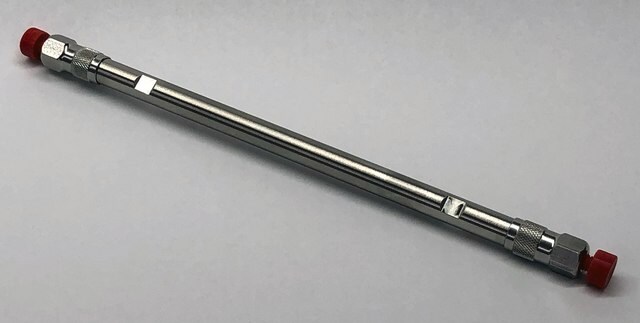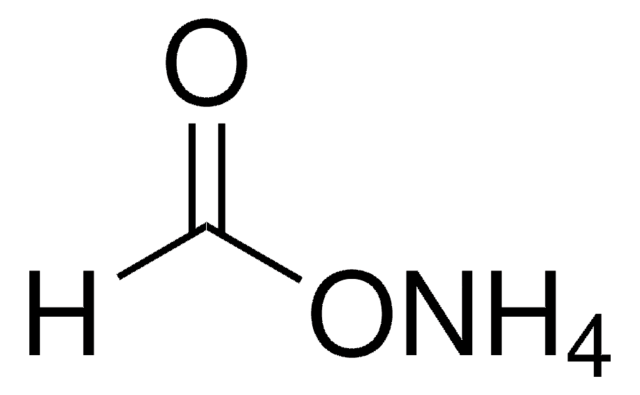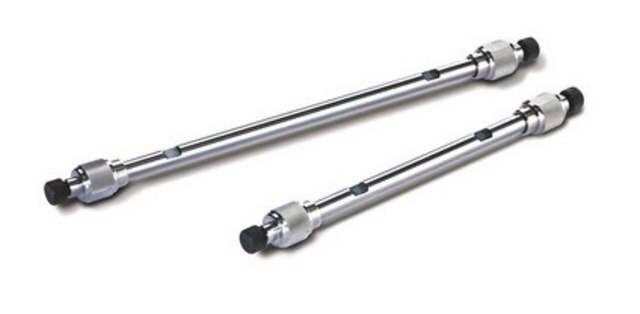505013
Discovery® RP-Amide C16 (5 µm) HPLC Columns
L × I.D. 15 cm × 4.6 mm, HPLC Column
About This Item
Recommended Products
Product Name
Discovery® RP-AmideC16 HPLC Column, 5 μm particle size, L × I.D. 15 cm × 4.6 mm
Agency
suitable for USP L60
Quality Level
feature
endcapped
manufacturer/tradename
Discovery®
extent of labeling
11% Carbon loading
parameter
≤70 °C temp. range
400 bar pressure (5801 psi)
technique(s)
HPLC: suitable
L × I.D.
15 cm × 4.6 mm
surface area
200 m2/g
surface coverage
2.6 μmol/m2
impurities
<10 ppm metals
matrix
silica gel, high purity, spherical base material
matrix active group
amide, alkyl phase
particle size
5 μm
pore size
180 Å
operating pH range
2-8
application(s)
food and beverages
separation technique
reversed phase
Looking for similar products? Visit Product Comparison Guide
Related Categories
General description
Application
- Impurities in drugs such as closantel, levamisole and azaconazole during their determination by high performance liquid chromatography-diode array detection (HPLC-DAD).
- Vitamin B6 compounds in food samples during their determination using LC coupled with fluorescence detection (FLD).
- Vitamin C and other fat soluble vitamins in mature seeds of Lathyrus L. taxa during their identification using HPLC with ultraviolet (UV) detection.
- Zidovudine in combination with other pharmaceuticals in intravenous fluid mixtures during the determination using HPLC combined with photodiode array (PDA) detector.
- Phenolic compounds, purine alkaloids and theanine in Camellia species by high performance liquid chromatography (HPLC) equipped with photodiode array detector (PDA).
- Proprietary pharmaceutical compounds using HPLC combined with computer-assisted screening and Plackett−Burman experimental design.
- Hydrophilic bases by LC with principal component analysis (PCA).
- 2,4-Dinitrophenylhydrazone derivatives by HPLC equipped with ultraviolet (UV) spectrometric detection.
Features and Benefits
- Excellent retention and resolution of polar compounds
- Unique selectivity compared to C18
- Excellent peak shape and efficiency
- Less hydrophobic than C18 columns
- Compatible with 100% aqueous mobile phases
Legal Information
Application
guard cartridge
related product
Storage Class Code
13 - Non Combustible Solids
WGK
WGK 3
Flash Point(F)
Not applicable
Flash Point(C)
Not applicable
Choose from one of the most recent versions:
Already Own This Product?
Find documentation for the products that you have recently purchased in the Document Library.
Customers Also Viewed
Chromatograms
application for HPLCapplication for HPLCapplication for SPE, application for HPLCOur team of scientists has experience in all areas of research including Life Science, Material Science, Chemical Synthesis, Chromatography, Analytical and many others.
Contact Technical Service








